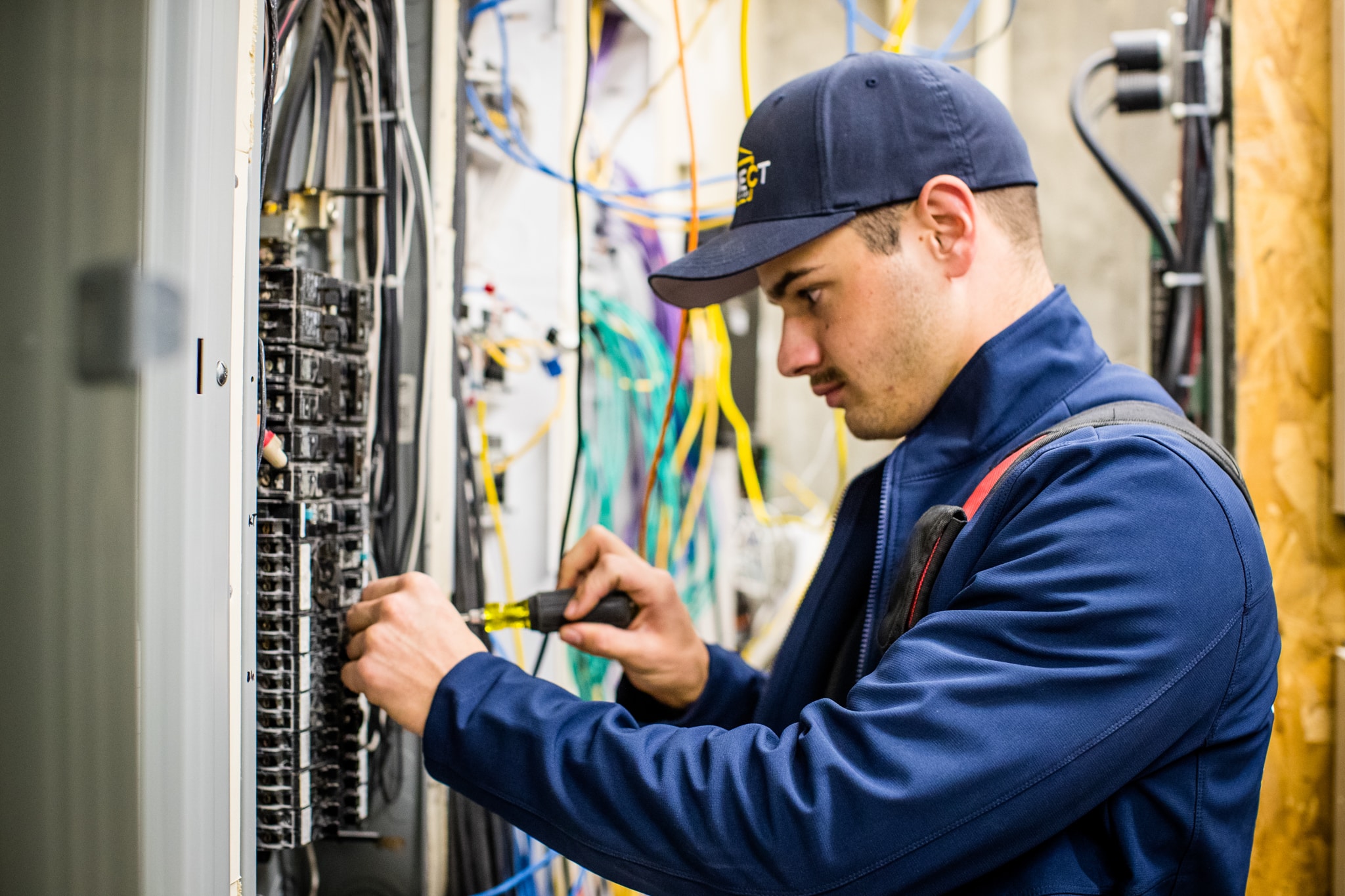
Electrical Wiring For Residential And Commercial Spaces
Homes and businesses need electrical wiring in order to function daily. While many people may understand that electrical is important, many don’t know all the components and inner workings of an electrical system.
Electrical wiring has different components depending on if you are installing it in a residential or commercial building. This is not a system that should be installed without the help of a licensed electrician. Avoid malfunctions and electric shock by working with our experts at Connect.
What To Know About Residential Electrical Wiring
Your home has a lot of different components that need electricity to function. Electrical wiring helps you to be able to see at night, wash clothing, cook food, and watch TV with your family.
The first mistake that homeowners make is thinking that electrical wiring and electrical cables are the same thing. In fact, a cable works to assemble two or more wires together in a singular jacket. Wires are insulated or bare connectors that are placed inside a jacket.
14 gauge and 12 gauge wire are the most common sizes of wire used inside residential homes. Some larger appliances like dryers or ovens could use 10 gauge more robust wire. The larger number the smaller the wire is. An electrician should know the difference between what wire is needed for a home or a larger commercial space. This will save a client money and frustration from installing the wrong gauge wire in their home.
Color Coordination For Wiring
 Wiring and sheath colors can vary depending on the different sizes or what they are used for in the system. Below are the most common colors for wiring in residential projects;
Wiring and sheath colors can vary depending on the different sizes or what they are used for in the system. Below are the most common colors for wiring in residential projects;
Sheath colors
- White= 14 gauge wire and 15 amp circuit
- Yellow= 12 gauge wire and 20 amp circuit
- Orange= 10 gauge wire and 30 amp circuit
- Black= 8 or 6 gauge wire and 45 to 60 amp circuits
- Gray= underground cables, sizes can vary Wire colors
- Black or Red= Hot wires. Carry the current from panel to device.
- White= Neutral wire. Carry the current back to the panel and complete the circuit
- Bare or Green= Ground wires. The ground wire provides a path for a fault current to make it back to the panel without blowing the fuse.
Electrical Wiring For Commercial Spaces
Commercial buildings have to run a lot more electronic systems than homes. Multiple computers, telephones, Wi-Fi, security systems, payment systems, and lighting need to operate all at the same time in a business. The electrical wiring will be more complex in a commercial space because it needs to have more power.
The system will need to be organized so that the electricity is distributed evenly. Various subpanels and breakers may need to be installed so that the wiring can feed the electricity to different areas. Commercial wiring will also need to communicate and work around other systems like HVAC, in order to determine wire size and circuit breaker capacity.
Another difference between commercial and residential wiring is that businesses often implement a backup power system or generators. Having multiple methods to help keep the business running when there is a problem is a great investment to implement from the start. Backup systems can be good for homes as well, but many homes are ok to go without electricity for a short period of time.
Benefits You Get From An Electrician
Hiring an electrician ensures that your electrical wiring is done correctly. While DIY home projects can seem appealing, this is one task you should leave to the professionals.
Some benefits you can get from working with a licensed electrician include:
● Make sure your building is up to code
● Insured just in case anything bad happens
● Give you long-term peace of mind
● Make repairs before problems become dangerous If you need a new electrical system, contact Connect Home Services today!

